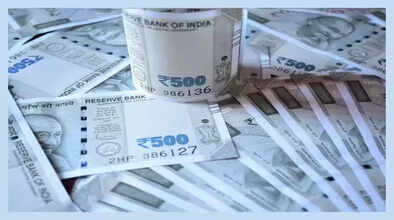Gratuity Rules: These are the two conditions under which the 5-year rule doesn't apply, but the gratuity calculation formula changes..

To receive gratuity, five years of continuous service with a company is required. But if an employee dies or becomes disabled in an accident before completing five years, what happens to the gratuity? Will they be paid the gratuity amount in this situation? This question is likely on many people's minds. Here's what the government rules are regarding this matter.
What is gratuity, and what does the 5-year rule say?
Gratuity is the amount a company pays its employees in return for long and excellent service. It's a reward that an employee receives upon leaving or retiring. Normally, if you've worked for a company for five consecutive years, you're eligible for gratuity. However, there are certain conditions under which the 5-year rule doesn't apply. In such cases, your family or you yourself receive the gratuity amount, but the calculation formula changes.
The 5-year rule does not apply in these two situations!
According to the Gratuity Act 1972, there are two situations where the 5-year rule does not apply:
Upon the death of an employee
If an employee dies while on the job, the 5-year period is not waited for. In such a case, the gratuity amount is paid to the employee's nominee or dependents. You can register your nominee's name by filling out Form F at the time of joining the job.
Upon the employee's disability
If an employee becomes disabled in an accident and is unable to work again, they are entitled to claim gratuity without completing the 5-year period.
The calculation formula changes!
When an employee dies or becomes disabled, they receive the gratuity benefit, but the calculation formula changes. The normal calculation formula is: (Last salary) x (Number of years worked at the company) x (15/26). However, in these special cases, the formula works like this:
Less than 1 year of service: Double the basic salary as gratuity.
More than 1 year of service, but less than 5 years of service: Six times the basic salary.
More than 5 years of service, but less than 11 years of service: 12 times the basic salary.
More than 11 years of service, but less than 20 years of service: Up to 20 times the basic salary.
20 years of service or more: 33 times the basic salary.
Tax Rules on Gratuity
According to the Income Tax Department, gratuity is taxable only if it exceeds a certain limit. The current limit is up to ₹20 lakh, meaning that gratuity amounts up to ₹20 lakh are tax-free. However, if the amount exceeds ₹20 lakh, the amount above this limit will be taxable.
Disclaimer: This content has been sourced and edited from Zee Business. While we have made modifications for clarity and presentation, the original content belongs to its respective authors and website. We do not claim ownership of the content.

